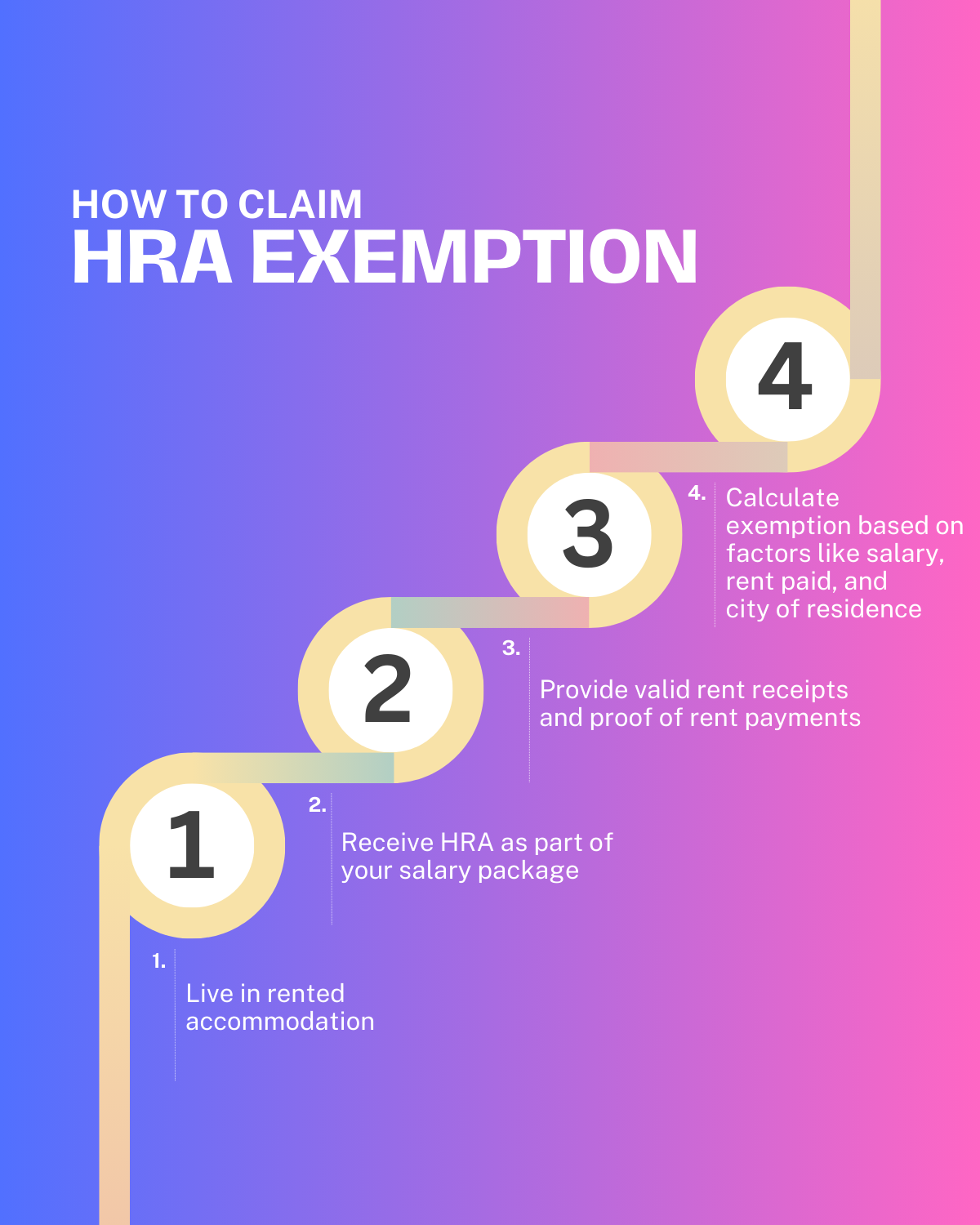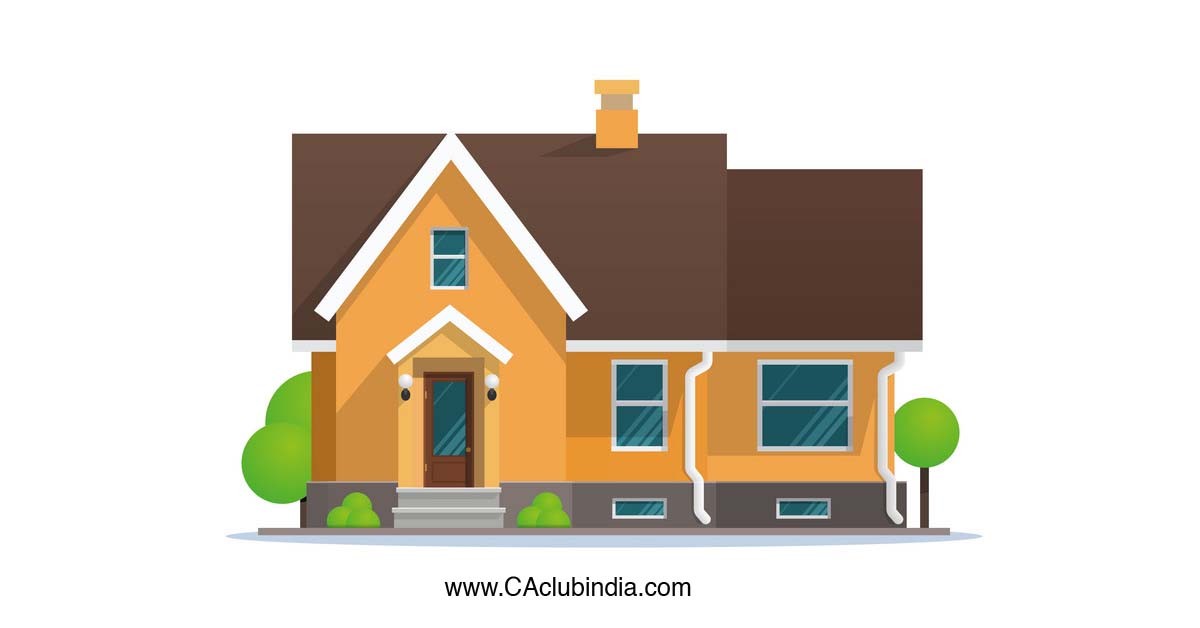Table of Contents
- House Rent Allowance
- How to claim HRA exemption?
- Is HRA exemption applicable in the new tax regime also?
- Calculation of Tax exemption calculation
- Eligibility criteria for claiming HRA exemptions for self-employed or salaried individuals
- Is it necessary to disclose PAN of the landlord?
- Can the benefit of rent paid be taken if HRA is not received?
- What proofs to be submitted to the employer for HRA exemption?
- If failed to submit proof to the employer then also benefit of deduction can be taken
House Rent Allowance
For salaried employees house rent allowance is a component of their salary. Unlike basic salary HRA is not fully taxable, a part of it is exempted u/s 10(13A) of Income Tax Act, 1961. However, tax exemption under this allowance is applicable only if the assessee stays in a rented premise otherwise it is fully taxable in the hands of assessee.
HRA exemption calculation is dependent on the following factors such as:
- Basic Salary of an employee
- City of stay
- Rent paid
- HRA component received as a part of the salary
How to claim HRA exemption?

Is HRA exemption applicable in the new tax regime also?
No, benefit of exemption of house rent allowance is not available in case assessee chooses new tax regime.

Calculation of Tax exemption calculation
Deduction available in least of the following:
- Actual HRA received
- 50% of (Basic salary + DA) for those living in metro cities (Delhi, Mumbai, Kolkata and Chennai)
- 40% of (Basic salary + DA) for those living in cities other than metro cities
- Actual rent paid over and above 10%(Basic salary + DA)
Let's consider a example to understand this concept better
Mr. Rajesh Kumar lives in Delhi and his earnings are -
- Basic Salary: ₹50,000 per month (₹6,00,000 annually)
- HRA: ₹15,000 per month (₹1,80,000 annually)
- Rent Paid: ₹18,000 per month (₹2,16,000 annually)
Solution :
| Actual Rent Paid minus 10% of Basic Salary | ₹2,16,000 - ₹60,000 = ₹1,56,000 |
| Actual HRA Given by Employer | ₹1,80,000 |
| 50% of Basic Salary | ₹6,00,000 * 50% = ₹3,00,000 |
The least of the three amounts is ₹1,56,000. So, in Mr. Rajesh Kumar's case, he can claim an HRA exemption of ₹1,56,000 from his income for tax purposes.
Eligibility criteria for claiming HRA exemptions for self-employed or salaried individuals
HRA for self-employed individuals
For self-employed individuals, HRA cannot be claimed, but they can avail tax deductions under Section 80GG for rented accommodation expenses.
HRA for Salaried individuals
Salaried individuals can claim HRA exemptions under Section 10(13A) of the Income Tax Act, subject to their company's policies.
Is it necessary to disclose PAN of the landlord?
Yes, if house rent paid to landlord over Rs. 1lac than in such case it is necessary to disclose PAN of the landlord to the employer for claiming the benefit of tax exemption.
Can the benefit of rent paid be taken if HRA is not received?
Yes, even if you are not receiving HRA but staying in rented accommodation then in such case deduction under section 80GG can be claimed. However, the following conditions should be satisfied:
- You are self-employed or salaried
- You have not received HRA at any time during the year for which you are claiming 80GG
- You or your spouse or your minor child or HUF of which you are a member – do not own any residential accommodation at the place where you currently reside, perform duties of office, or employment or carry on business or profession.
What proofs to be submitted to the employer for HRA exemption?
It is mandatory to submit rent agreement along with rent receipts to the employer for claiming a deduction.
If failed to submit proof to the employer then also benefit of deduction can be taken
If the assessee failed to furnish proof of rental accommodation to the employer then also benefit of deduction of HRA can be claimed while furnishing ITR.
Note – The above article is for educational purposes only.









 CAclubindia
CAclubindia
